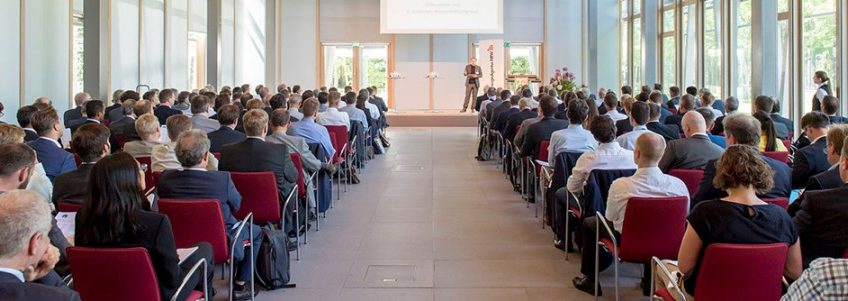With more than 200 decision-makers and experts from the areas of energy and transport, the 8th German Hydrogen Congress 2018 will be held at the North Rhine-Westphalia State Representation located at Hiroshimastrasse 12-16, 10785 Berlin-Tiergarten. The main topic of the congress being held on 6 and 7 June will be hydrogen as an economic factor in industry, energy and transport.
Many uses exist for hydrogen: as a chemical raw material in refineries, as a fuel in the transport sector, as an energy source in connection with the natural gas network and for reconversion to electricity in fuel cells. The 8th German Hydrogen Congress is dedicated to the “economic factor of hydrogen” with the aim of demonstrating the complexity of the topic in relation to new business models and identifying commercial opportunities. As part of the event, representatives from business, science and politics will discuss application possibilities and potentials. Jointly organizing the congress are the EnergieAgentur.NRW, the German Hydrogen and Fuel Cell Association (DWV) and NOW GmbH National Organisation Hydrogen and Fuel Cell Technology.
Steffen Bilger, Parliamentary State Secretary at the Federal Ministry of Transport and Digital Infrastructure, outlined in his welcome address:
“Hydrogen and fuel cells are key technologies for mobility 4.0. With the new drive systems, we are sustainably reducing CO2 emissions from transport and making the air in our cities significantly cleaner. We support the research and market ramp-up of these technologies through the National Innovation Programme Hydrogen and Fuel Cell Technology (NIP). To this end, we will continue to provide extensive funding support for the coming years.”
Dr. Mark Speich, State Secretary for Federal Affairs and Head of the North Rhine-Westphalia State Representation to the Federal Government, presented the topic from the perspective of the federal state. With almost 16 locations for hydrogen refuelling stations and 69 fuel cell buses in Cologne, Wuppertal and Münster, North Rhine-Westphalia represents a focal point in the development of infrastructure and public transport fleets. The state government regards hydrogen as an important factor in the future energy industry. Within the context of electric mobility with fuel cells and batteries, associated activities are bundled under the ElektroMobilität NRW umbrella brand.
During their presentations, the experts highlighted that hydrogen from renewable energy can already be a business case, e.g. in refineries and the chemical industry, but also in car sharing with fuel cell vehicles. The establishment of refuelling infrastructure for these vehicles is not even more costly than that for battery cars. Even in the Netherlands, where electric mobility already plays a major role, hydrogen from wind energy for use in vehicles and for supplying energy to buildings is an exciting topic, as the example of a project in Groningen showed.


